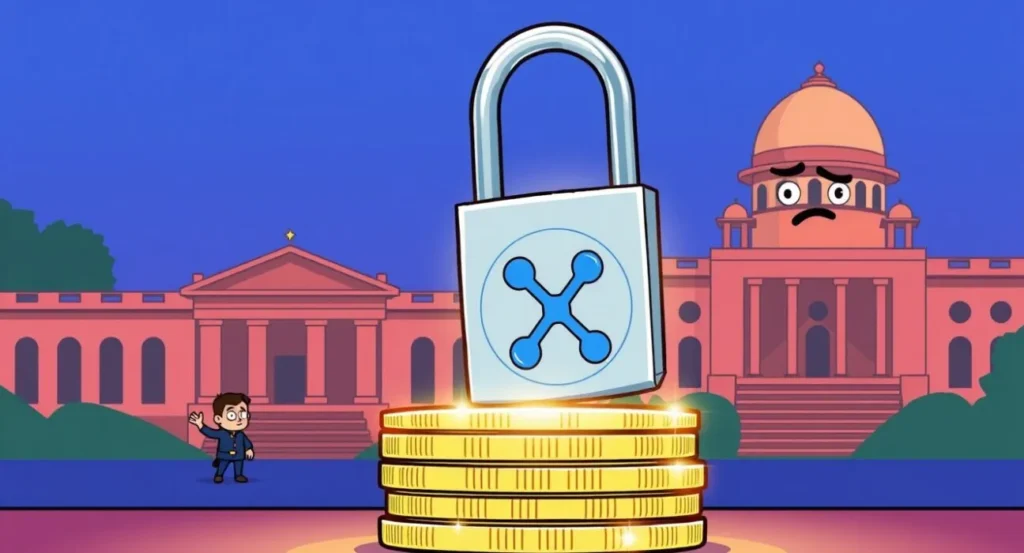Indian Court Ruling Bars WazirX from Redistributing XRP, Affirms Crypto as Property
In a landmark decision, an Indian court has affirmed that cryptocurrencies, including XRP, are to be treated as property, thereby imposing significant legal implications on how digital assets are handled within the country. The ruling came as part of a broader case involving WazirX, one of India’s largest cryptocurrency exchanges, which has now been explicitly barred from redistributing XRP tokens held in its wallets.
Background of the Case
The issue came to the forefront when a dispute arose between WazirX and several of its users who demanded the return of their XRP holdings. WazirX, facing regulatory uncertainties and operational difficulties, had initially paused and then planned to redistribute these XRP tokens among its users in a different manner. This move was contested in court by the aggrieved parties, leading to a crucial judicial examination of the status of cryptocurrencies under Indian law.
Court’s Decision on Crypto as Property
In its verdict, the court decisively recognized cryptocurrencies as property. This classification means that digital tokens such as XRP are now legally protected under Indian property law, which provides clarity but also imposes certain restrictions on how these assets can be handled by exchanges and financial institutions.
The recognition of cryptocurrency as property not only provides a layer of security for crypto holders but also binds the exchanges that manage these assets with stricter fiduciary duties. Legally, they are required to manage them as they would any other form of property that belongs to another person.
Implications for WazirX and Crypto Exchanges
For WazirX, the court’s decision to bar the redistribution of XRP highlights the degree of responsibility that exchanges have over user assets. The ruling prevents WazirX from using the XRP in its wallets for any purposes other than to return them to the rightful owners upon request. This decision is significant as it sets a benchmark for other exchanges in India, emphasizing that user assets cannot be treated as liquid tokens that can be freely redistributed or used by the exchanges themselves.
Impact on the Indian Cryptocurrency Landscape
This decision could have far-reaching implications across the Indian cryptocurrency landscape. By affirming cryptocurrencies as property, the judiciary has provided much-needed legal clarity which could encourage more robust investment and innovation in the sector. However, it also means that crypto businesses must be more diligent in their operations, adhering strictly to property law requirements.
Exchanges will need to implement more stringent custody solutions to ensure that user assets are held securely and are not commingled with operational funds. Furthermore, this classification could potentially open the door to more detailed taxation guidelines surrounding crypto assets, which have been a gray area up until now.
Looking Ahead
The ruling serves as a reminder of the evolving nature of legal frameworks surrounding digital currencies. As the global interest in cryptocurrencies continues to grow, legal systems worldwide are grappling with similar issues regarding the classification and management of digital assets. The decision by the Indian court adds another layer to the complex legal landscape that governs blockchain technology and its applications.
This decision is considered a win for crypto investors in India, who have long sought clarity and protection under the law. It solidifies their rights as property owners and provides a legal avenue for recourse in cases of disputes with crypto service providers.
As the implications of the court’s decision unfold, it will be interesting to see how this influences the broader adoption and acceptance of cryptocurrency in India, a country that stands as a significant player in the global digital economy. For now, both crypto users and service providers are urged to reevaluate their practices to ensure full compliance with this new judicial interpretation.








